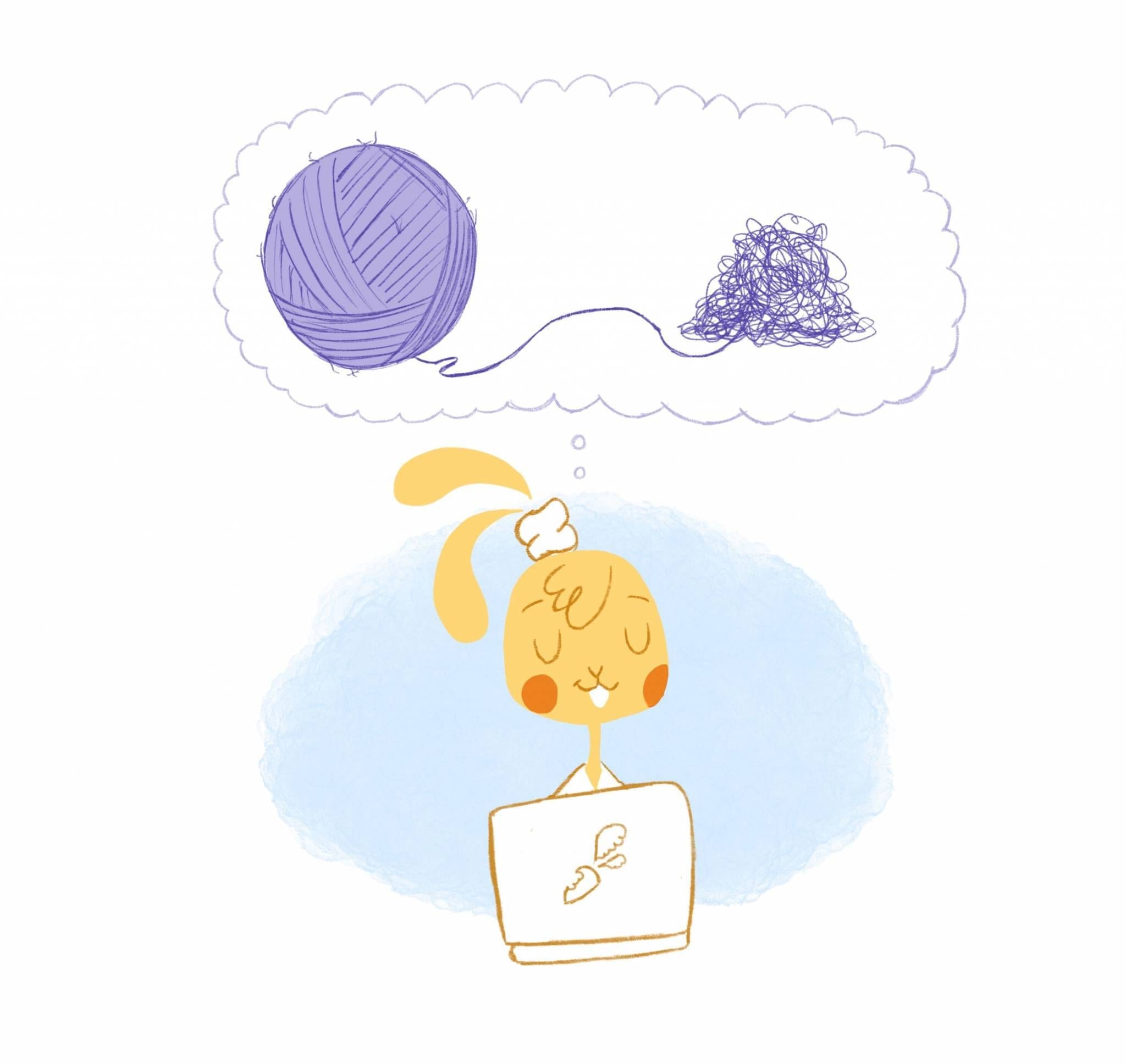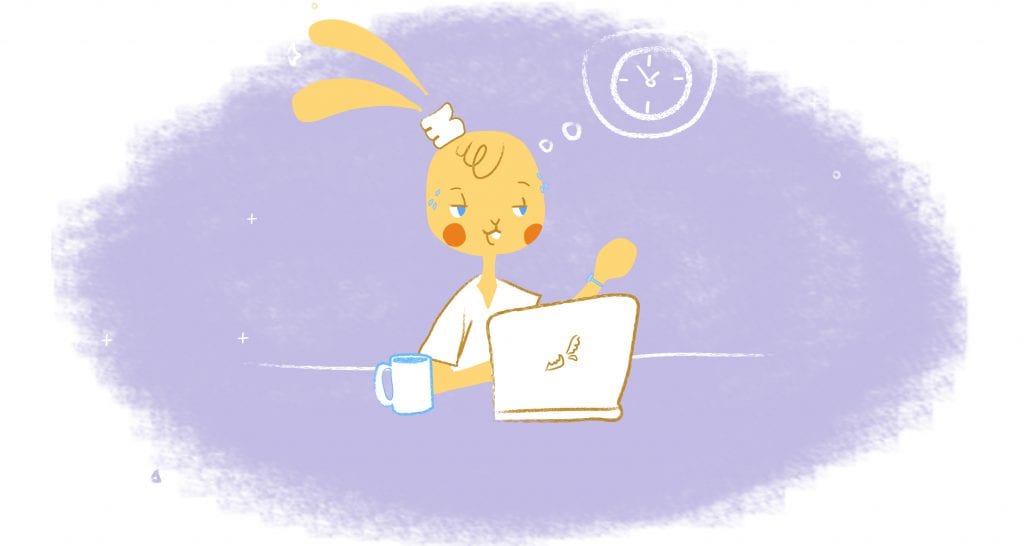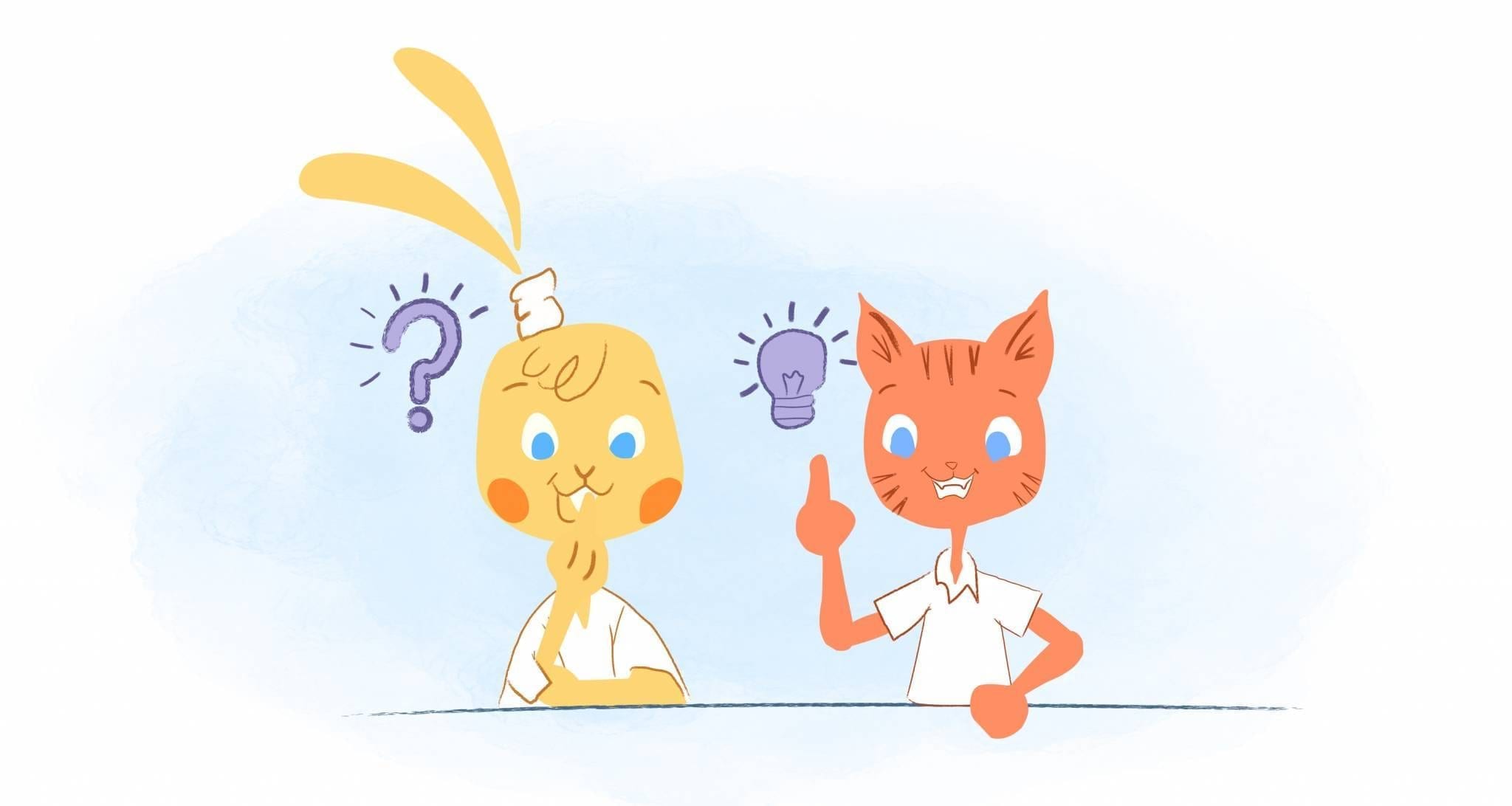

Growing up, there was an unwritten rule. Put your stuff away, or it’s going to get tossed by mom. Make your bed, or you’ll get called home from school to do that little chore. I’m sure these were lessons in taking responsibility. But, I honestly think that mom didn’t like clutter. Here are twenty ways to declutter your life, reduce stress, and clear your mind.
As I’ve gotten older, I’ve found myself agreeing with mom. For example, I cringe whenever I visit someone’s house or office, and they have stuff thrown all over their dining room table or desk. Obviously, I keep this to myself because I firmly believe people should live how they want to live.
Personally, clutter is stressful and distracting. It’s almost impossible to find items when you need them. And, it occupies your mind from getting stuff done. How can you focus on your work when that stack of paper is screaming for your attention?
It turns out that research has got my back on this. One study shows a link between clutter and procrastination. Numerous other studies have also found that clutter increases stress, decreases productivity, and makes it difficult to unwind. Moreover, clutter can encourage bad habits, such as unhealthy eating and sleep problems.
Too much clutter can signal a lack of control. And, most worrying to me is that clutter can clog neural networks. As a result, you’ll be slower and less efficient in processing information.
Overall, clutter can negatively influence your health, work performance, and possibly even your relationships. Thankfully, there are simple and effective ways — like the following 20 ways — to get rid of clutter in your life once and for all.
1. Create a decluttering checklist.
I think decluttering is a problem for most of us, maybe because of fear. What if I throw away that pair of pants and (horror), regret that decision — even though they were uncomfortable, looked hideous, and I hated them? What if I need to troubleshoot a problem someday, but I tossed the manual? You get the point.
One way to alleviate fear is to realize that removing the clutter from your life doesn’t mean living a life without any possessions you cherish (well, unless you move, then all bets are off). You’ll be reducing the number of things you own. For example, do you need to have a closet full of blankets? I need many quilts in the closet, but do you? You probably only need a lighter one for when it’s warm and thicket comfort for the colder months. You may even want to keep a throw on your couch. But, you probably don’t need much more than that.
To help get you started, create a decluttering checklist. It can help make this process less frustrating and give you a visual representation of what needs to be reduced. I love the book, “essentialism,” by Greg McKeown. You can also follow The Essential Declutter Your Home Checklist or use it as an inspiration to create your own.
2. Don’t overwhelm yourself; start small.
Let’s be real here. How likely are you going to clean and organize your entire home, office, or life in one day? That would be so ambitious it would overwhelm you, and likely prevent you from ever getting started.
Instead, take baby steps. Maybe set aside five minutes each day to straighten up a small area like a desk drawer or your car. After building up some momentum, set aside more time. Dedicate a Friday afternoon to get your office back in order.
Use this Saturday to declutter your kitchen, then next weekend work on a different home project. I have to break up cleaning binges with art binges. TV binges of old Christmas movies while ditching out my old stuff works pretty well. Listening to podcasts while you clean works quite well (you can’t go wrong with Tony Robbins on any subject he covers).
3. Does it bring you joy?
If you’re familiar with Marie Kondo, then you already know this tip. But, for those who aren’t familiar with her, it’s pretty simple.
Whenever you’re cleaning your home or workplace, physically hold or touch the item that you’re deciding about. Next, ask yourself, “does it spark joy?” Okay. You may not have to ask that literally. But, the idea here is to consider how you feel as you hold the object. For example, Kondo didn’t want to throw away an old and ragged t-shirt from an event she attended because when she held the shirt, it brought back good memories.
What if the object doesn’t invoke such feelings? Toss it — part ways with it. I admit to a “shitshow-box.” There are some things that I cannot part ways with, and I no longer force myself to go through those items. I only allow one small-ish box, and I only open this box if I want to “cry over spilled milk.”
4. Conduct a calendar audit.
Clutter isn’t just the items taking up physical space. It can also be the entries you’ve added to your calendar. Usually, Calendar clean-out includes minute activities and anything that you do automatically, such as brushing your teeth. Other examples would be unnecessary meetings, committing to too many social events, and recurring events that no longer fit into your schedule.
Review your calendar and remove these tasks and events from it. Going forward, start saying “yes” to less and use a scheduling assistant. You should also share your calendar with others to avoid double bookings and scheduling conflicts.
5. Adopt a no-freebies policy.
We’ve all been here before. You attend a conference or festival and come with a ton of free swag. I mean, who couldn’t use a new, and free, t-shirt, pen, water bottle, or beer koozie?
It may seem like a good idea at first. But, in reality, it’s just more stuff adding to your clutter — and it’s stuff you really don’t need. While this definitely takes some will power — stop stockpiling on all these freebies. I found some kids in the neighborhood that dig on that stuff. Let their parents worry about my trash.
6. Reconsider your routine.
Routines provide structure to your life. In turn, this reduces stress and makes your days less chaotic.
Establish a morning and evening routine. Jot down all of your daily and weekly obligations and add them to your calendar. Batch similar tasks together. And, only commit to what you can realistically achieve in a day.
In short, establishing a routine brings order to your life. It will also help you become more productive and prevents you from muddling your day with unimportant activities.
7. Unsubscribe and remove.
Struggling to keep up with your inbox isn’t just a serious waste of time — it’s a distraction that’s impairing your productivity and cutting into your enjoyment of life. With that in mind, one of the easiest ways to address your inbox is to unsubscribe from the emails that you never read. The same concept applies to newspapers or magazines that you never opened.
Speaking of digital distractions, remove any unused apps from your phone. As an added perk, it will help keep your device running at peak condition. You may even want to uninstall apps, like Facebook or Twitter, from your smartphone (I’d die, but you could probably handle it). The reason is that this will prevent you from looking at your phone every time you receive a notification.
8. Don’t get sentimental.
We all have items that we have an emotional connection to. You don’t necessarily have to throw away all of these items. But, again, the goal is to reduce them.
If you’re having difficulty with this, there is a simple solution. Just take a picture of the item and put it on the cloud. Not only will this help you let go, but it will also preserve the memory and not the possession.
9. Automate.
Here’s a simple way to clear your mind; embrace automation. Examples include setting up auto bill pay, scheduling social media posts, or creating out-of-office auto-responder emails.
10. Remove toxic people from your life.
Several years I befriended someone who I genuinely enjoyed spending time with. They were just a lot of fun and always wanted to explore any area when we could. The problem, unfortunately, was that they could also be a handful. There were several times when they would call me up after having a bad day. And, to be clear, it wasn’t just a quick synopsis. They would go on and on (which I love to hear), but soon, I was depressed. Sometimes I felt worse about their situation that they did.
But, if I ever needed to talk to them, they either didn’t listen or wouldn’t respond. Eventually, I decided to end the friendship because it wasn’t just one-side — it took a giant chuck out of my soul.
Evaluate all of the people in your life. And then, remove the people in your life who aren’t worth the time or energy.
11. Shred, recycle or trash anything outdated.
Do you have receipts from a decade ago? Is there a jacket in your closet that no longer fits you? Are there outdated medications eating up space in your bathroom cabinet? If so, don’t hesitate to shred, recycle, take to good-will, or trash these outdated items.
In a recent move, I filled an entire black garbage bag with old receipts, bank records, homes purchased and sold, etc. I should have shredded them — but I hadn’t kept up with that chore. Also, I had written down every expenditure I’d ever made in my life (including cash) from the time I was 15 years old. I gave it all away to my friend — the large blue recycle bin.
12. Simplify your goals.
There’s nothing wrong with setting goals. Goals give you focus, aid in motivation, and allow you to measure your progress. However, targets are only possible if you’ve established a small number of specific goals and objectives.
Review your goals to make sure that they’re not too broad or unrealistic. From there, develop an action plan on how you’ll follow through with them. Write all of your steps if you need to do that.
13. Tidy up your workspace and vehicle.
When you think of decluttering, you probably assume that’s getting your home or personal life in tip-top shape. But, it should also involve your workspace. The main reason is that your messy desk is killing your productivity. The process works for women, too, by the way.
Instead of continually putting this chore off until “tomorrow,” schedule a time in your calendar to tidy up your workspace. Ideally, this should be a time during a productivity lull, like in the middle of the afternoon. And, at the minimum it should involve you:
- Clearing and cleaning the top of your desk, as well as your drawers.
- Assigning a home for all of your stuff and trashing anything you don’t need.
- Filing paperwork using the standard alphabetical filing system. However, you can go further and scan these files so that you have digital versions. Now you can shred the original documents if they aren’t required.
- Removing unnecessary files or programs from your computer.
Additionally, take the time to tidy-up your vehicle. It’s better for your health, preserves the interior, and can improve fuel efficiency. It will also give you some peace of mind, like not having to worry about finding your insurance or registration if you ever got pulled over. Stick like items together. I have a small bag for make-up, a ziplock with some power bars and a water bottle, and a notebook and pen.
14. Use the four-box method.
The four-box method is an effective and painless way to help your conquer clutter. Just found four boxes and label them with the following categories:
- Trash: These are items that you no longer need or want. But, they’re also not worthy of donating or selling.
- Give away/sell: For the things that may have value to others, donate or sell them.
- Store: Seasonal clothing is a perfect example of this. There’s no need to keep your Tommy Bahama shirt hanging in your closet when it’s 30 degrees outside.
- Keep and put away: For the things that you use regularly, detonate a home for them and put them away when not in use.
15. Don’t buy anything unless it serves a purpose.
Just because there’s a fantastic sale doesn’t mean that you have to purchase it. For example, I recently got an email notifying me that there was a buy one, get one deal on sunglasses. It was a bargain. But, I already have two decent pairs of sunglasses, so there was no need to add to the collection.
16. Make it a social event.
Sometimes it’s just fun to do things with others. And, that’s even true when it comes to decluttering.
Besides giving you an excuse to spend time with your family or friends, they can also help you determine what to get rid of and what to keep. Just remember to offer to return the favor. You could even make this game with your children.
17. Stop multitasking.
Despite what you may believe, multitasking doesn’t work. It’s impossible.
“People can’t multitask very well, and when people say they can, they’re deluding themselves,” neuroscientist Earl Miller told NPR. “The brain is very good at deluding itself.”
“Switching from task to task, you think you’re paying attention to everything around you at the same time. But you’re actually not,” Miller said. “You’re not paying attention to one or two things simultaneously, but switching between them very rapidly.”
That means that multitasking isn’t just counterproductive. It also causes your brain to struggle as it attempts to figure out what’s going on.
The better alternative is to focus on one thing at a time. When it’s time to focus on deep work, then that’s the only thing you should be focused on. When it’s time to clean out your closet or inbox, that’s the single task that deserves your attention right now. Everything else will have to wait until later.
18. Practice mindfulness.
One of the best ways to clear your mind, as well as decrease stress and anxiety, is to practice mindfulness meditation. The reason that mindfulness works is that it redirects your thoughts and attention to the present, You will stop being consumed by the past, future, and negative self-talk.
19. Unplug and unwind.
Your brain needs time to rest and recharge. As a result, you’ll be more productive and less stressed.
Schedule frequent breaks throughout the workday and get away momentarily. Go for a walk, read, or look out the window for a couple of minutes. At home, establish boundaries. For example, when it’s time to eat dinner, don’t look at your phone. During the weekend, go out and do something that you enjoy that’s not related to work.
Besides giving you a chance to decompress, disconnecting allows reduces the amount of media that you’re consuming. Obviously, you want to learn new information and skills. But, too much can clog your brain.
20. Make decluttering a priority.
Finally, there’s more to decluttering than just cleaning and organizing. It also about staying committed to living a clutter-free life. The easiest way to do this is to schedule frequent cleaning sessions in your calendar.
For instance, you could block out from four p.m. to five p.m. on the last Friday of every month to tidy up your office. Every Saturday morning could be reserved for household chores. And, so forth.
The idea here is that by scheduling these sessions, you’re committing to follow through with them. You keep your word — like you would with an appointment with a client or doctor. Also, because you’re staying on top of this, cleaning and organizing your life won’t be as overwhelming.











Deanna Ritchie
Editor-in-Chief at Calendar. Former Editor-in-Chief and writer at Startup Grind. Freelance editor at Entrepreneur.com. Deanna loves to help build startups, and guide them to discover the business value of their online content and social media marketing.